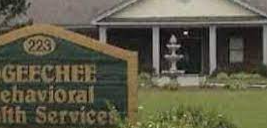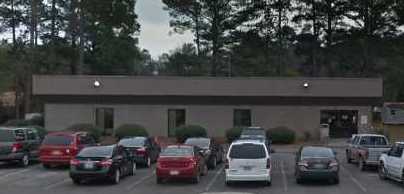CSB of Middle Georgia

Contact Details
-
Name:CSB of Middle Georgia
-
Address:2121-A Bellevue Road
Dublin, GA - 31021 -
Phone:478-272-1190
-
Email:
-
Website:
Description
There are currently state and federally funded or sponsored drug and alcohol treatment centers in the state of Georgia
Questions & Answers
Help others like you find out more about CSB of Middle Georgia. Do you know the answers to any of these questions? Contribute now and help others like you.
What kinds of care do they offer?
-
Mental health treatment
Includes interventions such as therapy or psychotropic medication that treat a person's mental health problem or condition, reduce symptoms, and improve behavioral functioning and outcomes.
-
Treatment for co-occurring substance use plus either serious mental health illness in adults/serious emotional disturbance in children
Housing for individuals recovering from substance abuse that is designed to provide a drug and alcohol-free living environment and appropriate support services to facilitate movement to independent living. Such housing includes transitional living, sober houses, sober living, recovery houses, and 3/4 houses.
What type of facility is this?
-
Outpatient mental health facility
Facility that primarily provides ambulatory clients/patients with less than 24-hour outpatient mental health services for generally less than 3 hours at a single visit. Services are provided on an individual, group or family basis, usually in a clinic or similar facility. A psychiatrist generally assumes the medical responsibility for all clients/patients or direction of the mental health treatment.
What types of treatment approaches do they offer?
-
Cognitive behavioral therapy
Involves recognizing unhelpful patterns of thinking and reacting, and then modifying or replacing these with more realistic or helpful ones. The therapy can be conducted with individuals, families, or groups, and clients are generally expected to be active participants in their own therapy.
-
Dialectical behavior therapy
A cognitive behavioral treatment approach with two key characteristics: a behavioral, problem-solving focus blended with acceptance-based strategies, and an emphasis on dialectical processes. "Dialectical" refers to the issues involved in treating patients with multiple disorders and to the type of thought processes and behavioral styles used in the treatment strategies. DBT has five components: (1) capability enhancement (skills training); (2) motivational enhancement (individual behavioral treatment plans); (3) generalization (access to therapist outside clinical setting, homework, and inclusion of family in treatment); (4) structuring of the environment (programmatic emphasis on reinforcement of adaptive behaviors); and (5) capability and motivational enhancement of therapists (therapist team consultation group). DBT emphasizes balancing behavioral change, problem-solving, and emotional regulation with validation, mindfulness, and acceptance.
-
Integrated Mental and Substance Use Disorder treatment
Provides combined treatment for mental illness and substance abuse from the same clinician or treatment team. Effective integrated treatment programs view recovery as a long-term, community-based process. The approach employs counseling designed especially for those with co-occurring disorders.
-
Activity therapy
Includes art, dance, music, recreational and occupational therapies, and psychodrama.
-
Smoking permitted in designated area
A designated area in which smoking is permitted.
What type of setting is this location?
-
Outpatient
Describes patients who receive treatment services without an overnight stay at a treatment facility or hospital.
Who is responsible for the operation of this facility?
-
State government
Government of a country subdivision in a federal form of government, which shares political power with the federal or national government and must meet certain standards set by the federal government, but are free to expand beyond what exists at the federal level and improve services, access, and protections for consumers, such as mental health and substance abuse services, in that state.
What types of payment or funding do they accept?
-
Cash or self-payment
Payment for treatment is made by the person directly, through cash or other means, rather than using health insurance.
-
Medicaid
A joint federal and state program that helps with medical costs for some people with low incomes and limited resources. Medicaid programs vary from state to state.
-
Medicare
The federal health insurance program for people age 65 and older and people with disabilities.
-
State-financed health insurance plan other than Medicaid
-
Private health insurance
-
Federal military insurance (e.g., TRICARE)
-
State mental health agency (or equivalent) funds
Funds designed to finance the cost of treatment for mental health conditions.
-
State welfare or child and family services funds
-
State corrections or juvenile justice funds
-
State education agency funds
-
Other State funds
-
County or local government funds
-
Community Service Block Grants
Provides funds to alleviate the causes and conditions of poverty in communities.
-
Community Mental Health Block Grants
Through individual block grant contracts with community mental health services programs, these resources are focused on development and maintenance of community based services.
What specific groups are treated here?
-
Persons 18 and older with serious mental illness (SMI)
Facility has a program or group specifically tailored for persons with serious mental illness.
What types of recovery support services are offered here?
-
Mentoring/peer support
-
Housing services
Are designed to assist individuals with finding and maintaining appropriate housing arrangements.
What ancillary services are offered at this facility?
-
Court-ordered outpatient treatment
Known by different terms in different states, such as, ?assisted outpatient treatment (AOT),? ?involuntary outpatient treatment,? or ?mandatory outpatient treatment.? Forty-four states permit the use of court-ordered outpatient treatment as a condition for persons with severe mental illness, who are too ill to seek care voluntarily, to remain in their community. Each state has its own civil commitment laws that establish criteria for determining when court-ordered treatment is appropriate for these individuals. (https://www.crimesolutions.gov/ProgramDetails.aspx?ID=228)
-
Education services
Locate or provide educational services from basic literacy through a general equivalency diploma and college courses including special education at the pre-primary, primary, secondary, and adult levels.
-
Family psychoeducation
Helps consumers and their families and supporters, through relationship building, education, collaboration, and problem solving to: 1) learn about mental illness; 2) master new ways of managing their mental illness; 3) reduce tension and stress within the family; 4) provide social support and encouragement to each other; 5) focus on the future; and 6) find ways for families and supporters to help consumers in their recovery.
-
Illness management and recovery
Uses a standardized individual or group format based on five evidence-based practices: 1) Psychoeducation, 2) Behavioral tailoring, 3) Relapse prevention training, 4) Coping skills training, and 5) Social skills training.
-
Psychosocial rehabilitation services
Offered individually or in groups, provide therapeutic or intervention services such as daily and community-living skills, self-care and skills training (grooming, bodily care, feeding, social skills training, and basic language skills).
-
Supported employment
Services include assisting individuals with finding work; assessing individuals' skills, attitudes, behaviors, and interest relevant to work; providing vocational rehabilitation and/or other training; and providing work opportunities.
What age groups are accepted here?
-
Young Adults
Facility accepts young adults (13-25) for treatment.
-
Adults
Facility accepts adults (26-64) for treatment.
-
Seniors
Facility accepts seniors (65 or older) for treatment.
What specific pharmacotherapy treatments do they provide?
-
Antipsychotics used in treatment of SMI
A multi-disciplinary clinical team approach, helps those with serious mental illness live in the community by providing 24-hour intensive community services in the individual's natural setting.
Is vaping allowed at this facility?
-
Vaping permitted in designated area
How do I apply for admission at this location?
Have you been to this facility? What was your experience?
Is there a wait-list for treatment center?
Is any payment required?
Related Posts
Community Mental Health Center
- Eastman, GA
- 27.46 miles away

